Many parents worry that their baby may be poorly but they don’t know it, a common worry as a baby can’t communicate to you that they are unwell. If this is a particular stress for you then take a moment to calm down, this worry is completely normal.
Your baby will become ill at some point during their first year as their immune system is busy developing, but it is important to remember that a lot of the time your parental instinct will tell you that they are not quite themselves.
As they grow a bit and their immune system really starts to take form, these minor illnesses will be more noticeable and easier to identify as they will show certain symptoms. Here are a few ways that you can spot if your baby is unwell.
Does your baby have a fever?
A fever (raised body temperature) is a normal symptom to have with the majority of illnesses as this helps the immune system to fight off an infection.

You will be able to tell if your baby has a fever just by touching their forehead, tummy or back, and sometimes they may have flushed cheeks. You can also confirm this with a digital thermometer.
Most of the time, you can let a fever run its course without treatment, just make sure that your baby is comfortable. If their temperature is 38 degrees C or more (for a baby of 0-3 months) or 39 degrees C or more (for a baby of 3-6 months) however, you should go and see the doctor.
Does your baby have a cough?
Most common colds come with a cough, so if your baby is coughing, they should recover completely at home with your care within a week or two.
You should go and see the doctor if a cough sounds like:
- A bark – this could be croup.
- A raspy, dry cough that persists – this could be bronchiolitis.
- A distinctive “whoop” – this could be whooping cough and is very serious is your baby hasn’t had their vaccinations yet.
- A blockage that comes with phlegm (a thick yellow, green or brown mucus) – this could be pneumonia.
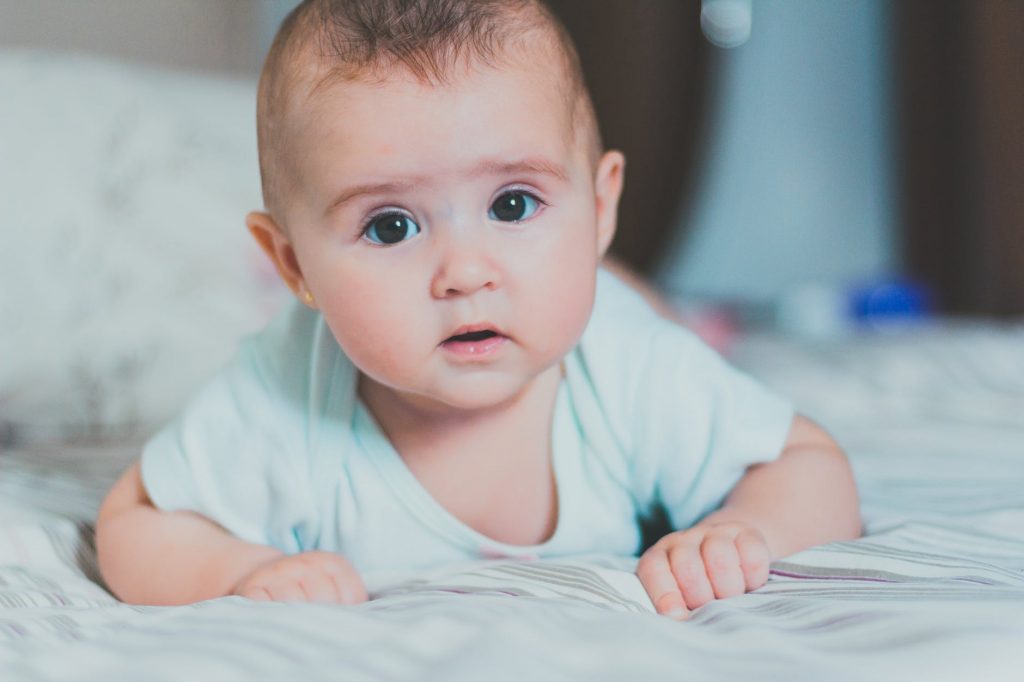
Does your baby have a runny/blocked nose?
Newborns and babies tend to have a runny nose normally when they are perfectly well and healthy as normal mucus builds up in their tiny noses and they are unable to clear it like us when we blow our nose. This is completely normal and it actually plays an essential part in protecting their airways from germs that will make them ill.
When your baby is young, a sniffly nose is more likely to be normal, but if they are older and the runny/blocked nose coincides with your baby not eating, sleeping properly, it is most likely a cold.
Most colds go away within a couple of weeks without medical treatment and lots of care and comfort from you. If it persists, however, and is accompanied by a fever, then you should take them to see a doctor.
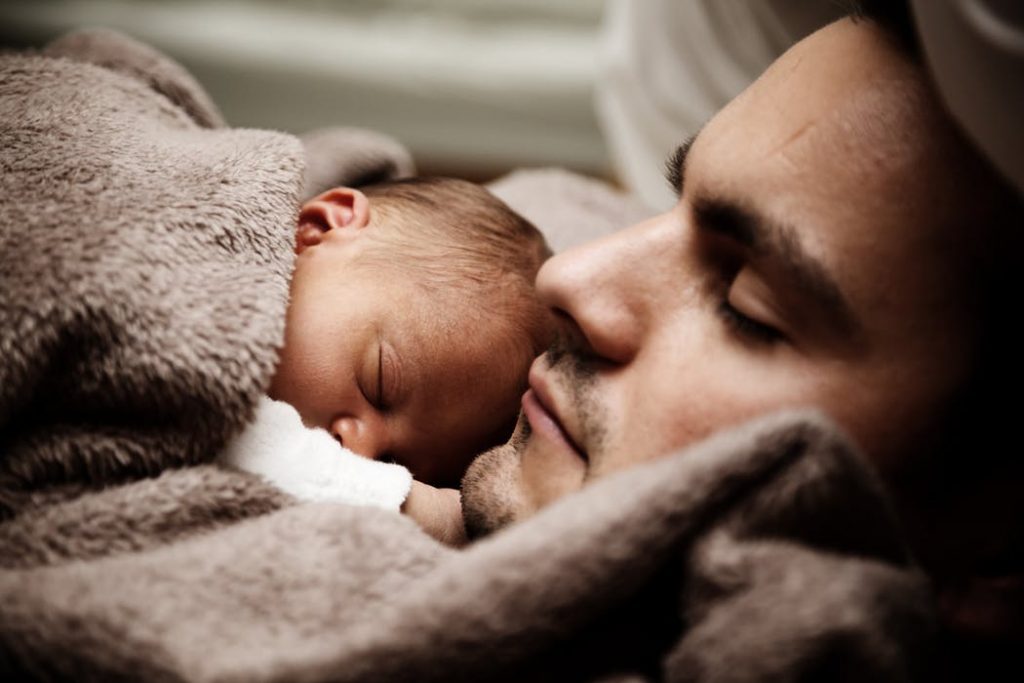
Does your baby have an ear infection?
Similarly to the mucus in your baby’s nose, the mucus in the ear is normal. However, if your baby has an excess of mucus (more than their normal amount), then they may have an ear infection.
Your baby may have an ear infection if they are:
- Pulling, tugging or rubbing their ear
- Not feeding well
- Not sleeping well
- Irritable
- Not noticing quiet sounds
An infection should clear up on its own after 2-3 days, but if it lasts longer or seems to be causing your baby pain, you should take them to see the doctor.
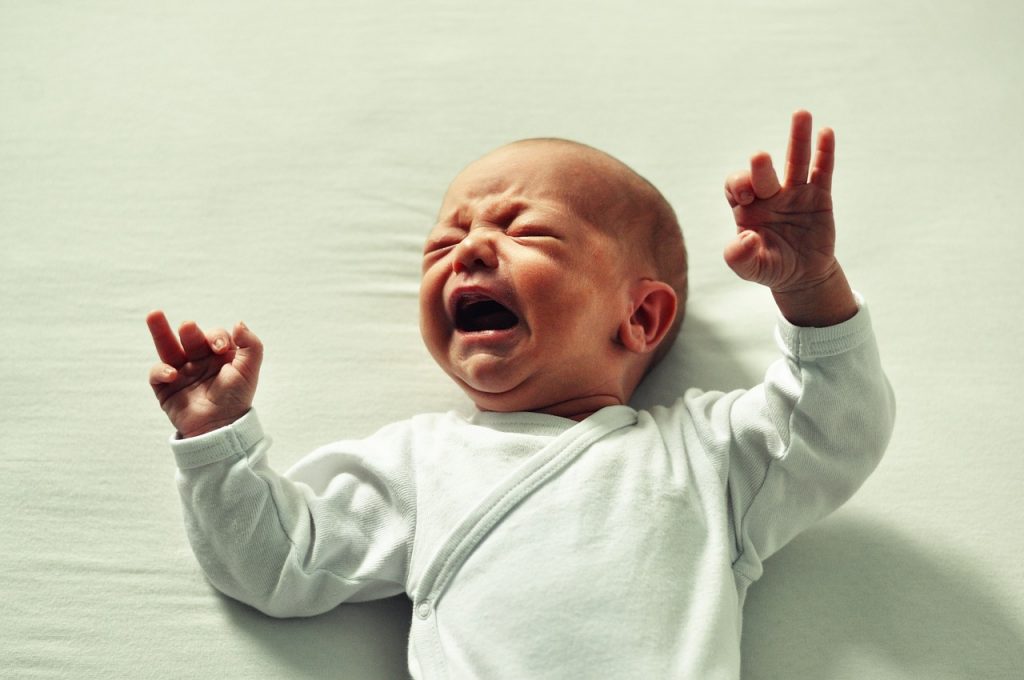
Does your baby have a rash?
A rash looks worse than it is and most are harmless, so if your baby has spots, blisters or blotches on their skin, don’t worry, this is a normal immune response.
Most childhood rashes can be treated at home such as chickenpox, roseola, slapped cheek syndrome, and hand, foot and mouth disease, however, a few are caused by more serious illnesses that will need a visit to the doctor. These are:
The most serious rash to be aware of is bacterial meningitis. If your baby has lots of red or purple pinpricks that don’t fade when you press a glass against them, go straight to your local A&E or call 999. This rash is rare but can have very serious effects.
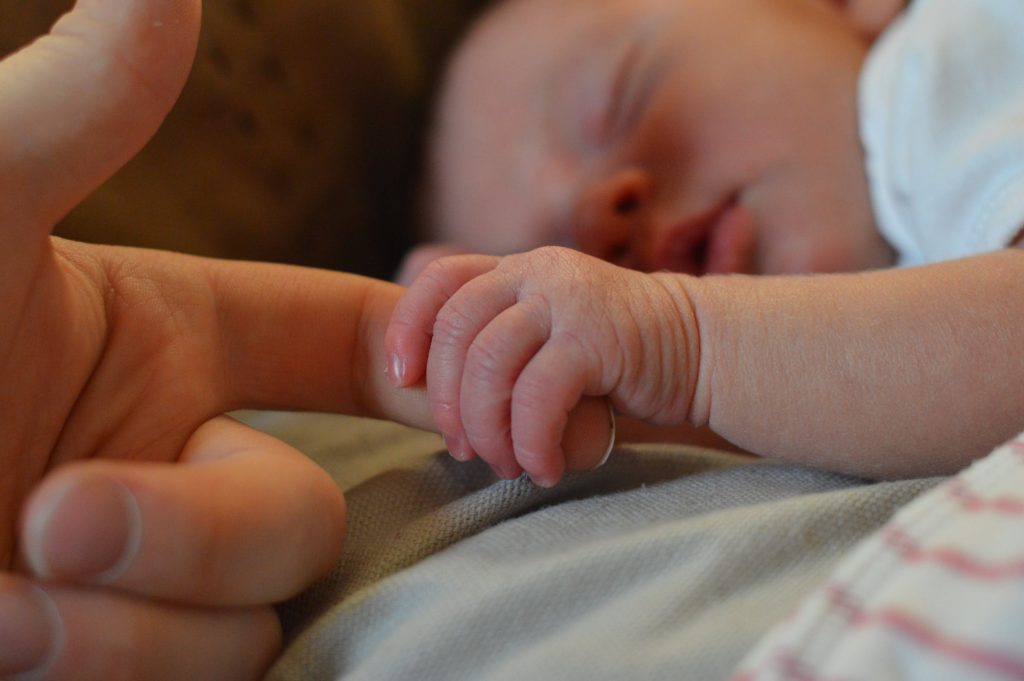
Does your baby have a tummy bug?
If your baby has vomiting and diarrhoea together, they most likely have a tummy bug. This is not when your baby is bringing up milk feeds, this is normal in the first few months as their digestive system matures, it is when your baby is bringing up most of their stomach contents consistently.
Most vomiting and diarrhoea goes away after one or two days (vomiting) and 5-7 days (diarrhoea), you just need to make sure that your baby is drinking plenty so that they don’t get dehydrated. If it persists or accompanies other unusual symptoms, take your baby to see the doctor.
Does your baby have any other symptoms?
You know your baby, so if you see any symptoms that won’t go away despite your efforts or care, it is always best to take them to see the doctor.
Examples of this would be dehydration (dry lips, fewer wet nappies than usual, dark yellow wee, cold and blotchy-looking hands and feet) that persists even when they drink lots of fluids or weight loss as your baby grows.
If you’re still unsure, read our blog on How to Know When to Visit the Doctor if Your Baby is Unwell
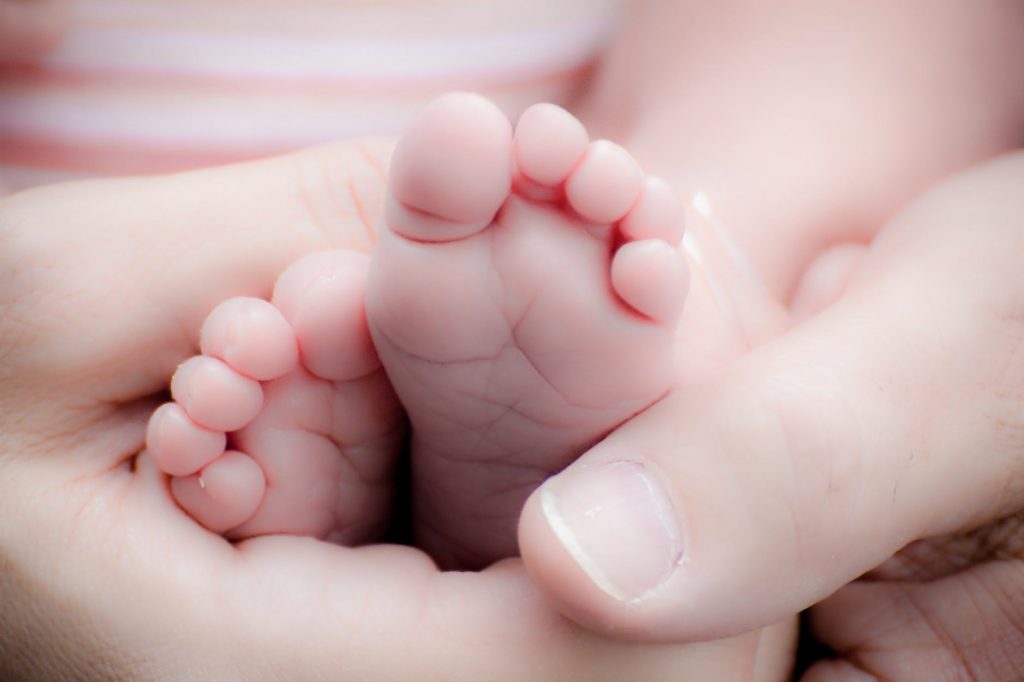
Your baby will get unwell and most will be minor illnesses that go away in a few days. If you’re worried, however, or the symptoms persist, it is always better to take your baby to a doctor.
Although it may get you down to see your little one unwell, just remember, every cold is making them stronger for the future!
** Disclaimer: this blog is only meant as a basic resource, offering medical advice to parents with babies. We are in no way medical professionals so we always recommend consulting your local doctor when it comes to the care of your children.**
At Schoolhouse Daycare, we enjoy learning, encouraging confidence and we love life! If you think your child would enjoy life at Schoolhouse, then please do not hesitate to arrange a visit.

